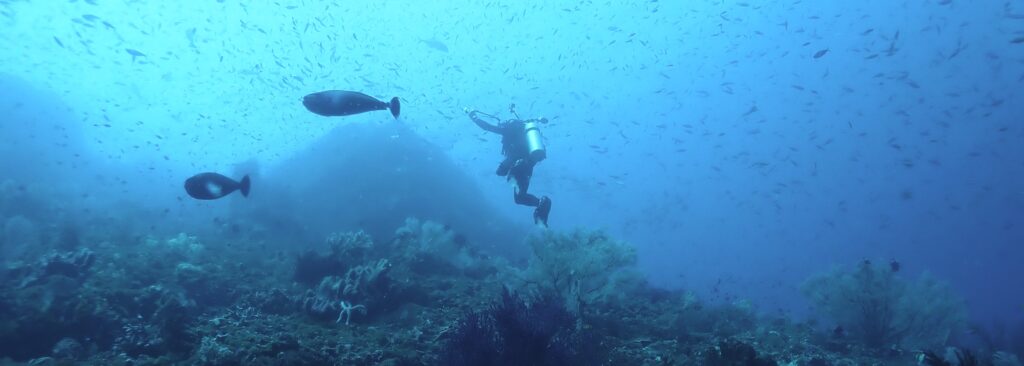Resilience of the Richest Reefs: Defining the safe operating space for tourism in Marine Protected Areas
Coral reefs are under severe threat worldwide. Some of the most biodiverse reefs in Indonesia and the Dutch Caribbean are currently a focal point for marine conservation bij governments and organizations. At the same time these reefs are actively promoted as a key attraction for marine tourism. The key question we address in this program is how tourism, in combination with other drivers such as climate change, fishing and pollution, will affect the ecological integrity, local livelihoods and social cohesion of these marine tourism hotspots.
Marine protected areas
Marine protected areas (MPAs) are commonly used to protect coral reefs and to serve as a reservoir of biodiversity for a larger region, as well as to sustain livelihoods, e.g. through marine tourism. An MPA consists of an ecosystem, a social system and a governance arrangement to restrict access and distribute benefits. In other words, an MPA is a multidimensional entity requiring an interdisciplinary approach to understand and adaptively manage its resilience. The resilience of MPAs refers to the capacity of the social and ecological system to respond to environmental and societal changes and absorb perturbations without losing the functions and composition. Marine tourism may support the resilience of MPAs, e.g. by financing marine conservation measures, but may also reduce the resilience by putting stress on the ecosystem and affiliated societies.
A key challenge remains to understand the dynamics of the MPA as a whole: how are social and ecological factors interlinked and how do they affect resilience? In this program we set out to identify and develop the conceptual and hands-on methodological tools for analyzing how resilience can be (i) measured, (ii) monitored, and (iii) governed to safeguard the marine protected areas in a future of fluctuating tourism and climate change.
Needs
Through onsite interviews and digital workshops between January-September 2020, diverse stakeholders from Indonesia and the Dutch Caribbean have identified the following needs where maximal impact can be made:
- filling key gaps in knowledge on biodiversity dynamics, hydrodynamics, nutrient flows, financial flows and governance structures;
- understanding the ecological, economic, and social effects of tourism;
- building awareness among tourists and locals about their direct and indirect impact on the system;
- enriching higher education and academic development of faculty at local universities;
- training staff of NGOs and local government in advanced monitoring techniques;
- low-tech solutions for sanitation;
- tool for adaptive management of tourism and other drivers of change in the MPAs.
In order to address the stated issues, we use a social-ecological-systems approach to sustaining the resilience of Marine Protected Areas in the face of growing tourism and climate change. This approach explicitly links the resilience of ecosystems to governance structures, economies and society. Central to this endeavor is an improved understanding of the state of the social- ecological system of the MPAs in different levels of tourism development.

